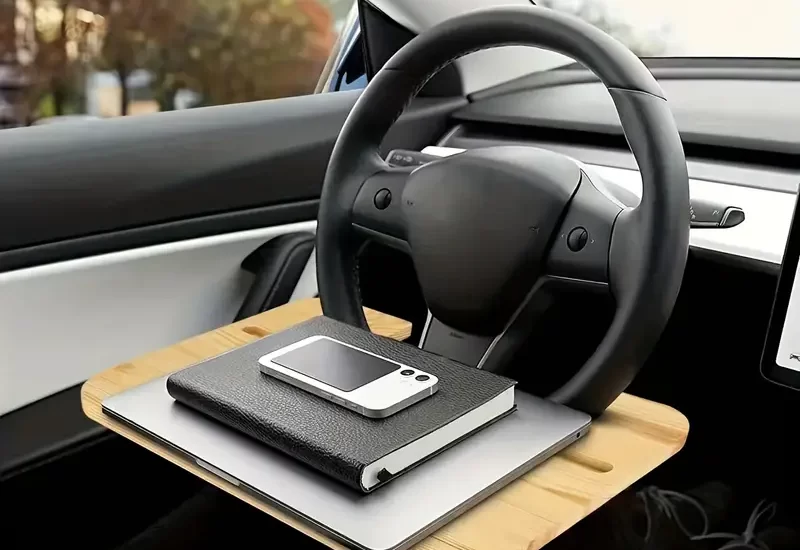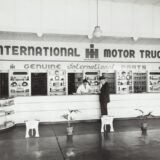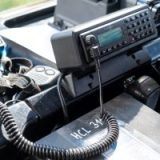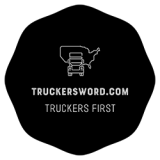Is Your Truck Company Compliant

Attn All drivers let’s point out key factors about your contract with a company as an independent contractor: What Trucking companies do not want you to know.
- § 14103. Loading and unloading motor vehicles (a) SHIPPER RESPONSIBLE FOR ASSISTING.— Whenever a shipper or receiver of property requires that any person who owns or operates a motor vehicle transporting property in interstate commerce (whether or not such transportation is subject to jurisdiction under subchapter I of chapter 135) be assisted in the loading or unloading of such vehicle, the shipper or receiver shall be responsible for providing such assistance or shall compensate the owner or operator for all costs associated with securing and compensating the person or persons providing such assistance. (b) COERCION PROHIBITED.—It shall be unlawful to coerce or attempt to coerce any person providing transportation of property by motor vehicle for compensation in interstate commerce (whether or not such transportation is subject to jurisdiction under subchapter I of chapter 135) to load or unload any part of such property onto or from such vehicle or to employ or pay one or more persons to load or unload any part of such property
- Answer: another words, all cost of labor must be compensated to owner operator. ( line haul is for transportation only} where is the labor reimbursement cost?
- Your Escrow must be released to you upon termination in writing. The truth in federal leasing laws Title 49 C.FR 376.11 specifically states: Under any circumstances may the escrow be returned later than 45 days.
- For your escrowDuring your lease, you must receive from carrier a separate monthly statement of an interest-bearing account 91-day 13-week treasury provided to you each month by carrier or agent, in which rates are determined weekly By Treasury Department
- Upon entering a lease agreement, You are not required to purchase or rent any equipment upon entering a lease agreement
Answer: if you must purchase or rent Qualcomm, Eld, Peoples net, dolly’s, pads, trailer insurance, truck insurance, public liability insurance, decals, truck numbers, possibly having to pay to have his truck painted their colors, paint is also a product if you are not allowed to obtain any of these on your own! Or I currently contracted and charged not given the opportunity to obtain on your own or forced you may be entitled to a lawsuit Under The Private Right of Action against your company. - When an lessor revenue is based on percentage of the gross revenue for a shipment, you are entitled to a computer generated statement and or an copy of the completed billed freight bill ( Key word must be one of the same ) So another words if they refuse to show them or provide copies they are not one of the same computer generated statement and or hiding a large portion that is coming off the top without your knowledge.
- Payment to drivers from the carrier must be paid in full within 15 days of receiving paperwork to carrier by contractor also the laws apply to the carrier that the independent contractor does not have time limits in submitting his paperwork after delivery
- Carrier must provide any refunds of base plate of unused portion and any fuel tax credits
- When a shipment is pre-loaded the carrier is responsible to the driver for any overweight, over dimension by height or width the carrier is fully responsible for reimbursing such fines to contractors
The Best thing you can do as a driver in the event you are terminated or decide to leave a company is to send them a written statement that all identification has been removed which only applies to decals and not paint so your 45 days of escrow return begins.
Many carriers such as Atlas Van Lines, United Van Lines, North American Van Lines, Dart, England, Allied Van Lines, Wheaton van lines sometimes will use brokers or third party companies then forward it to carriers such examples Tier One, Charter, Denali, You also have accounts like consumer relocation that take huge numbers off the top of 12 percent before any discount including your fuel surcharge and many carriers will skim off your fuel surcharge. It Is time for a change in the trucking business for you to make good money year round not part of the year. As you all are professional drivers and should be treated as such. This site was built with you in mind and if you have any suggestions or are working for a non-compliant, dis honest trucking company we would love for you to reach out to us so that we can expose them on this website. In a blog post
We have enclosed a copy of the truth and federal leasing laws.
Dive safe and keep on trucking.
§ 376.11 – General leasing requirements.
Other than through the interchange of equipment as set forth in § 376.31, and under the exemptions set forth in subpart C of these regulations, the authorized carrier may perform authorized transportation in equipment it does not own only under the following conditions:
(a) Lease. There shall be a written lease granting the use of the equipment and meeting the requirements contained in § 376.12.
(b) Receipts for equipment. Receipts, specifically identifying the equipment to be leased and stating the date and time of day possession is transferred, shall be given as follows:
(1) When possession of the equipment is taken by the authorized carrier, it shall give the owner of the equipment a receipt.
(2) When possession of the equipment by the authorized carrier ends, a receipt shall be given in accordance with the terms of the lease agreement if the lease agreement requires a receipt.
(3) Authorized representatives of the carrier and the owner may take possession of leased equipment and give and receive the receipts required under this subsection.
(c) Identification of equipment. The authorized carrier acquiring the use of equipment under this section shall identify the equipment as being in its service as follows:
(1) During the period of the lease, the carrier shall identify the equipment in accordance with the FMCSA’s requirements in part of this chapter (Identification of Vehicles). The Truth In Federal Leasing CFR 376.12
(2) Unless a copy of the lease is carried on the equipment, the authorized carrier shall keep a statement with the equipment during the period of the lease certifying that the equipment is being operated by it. The statement shall also specify the name of the owner, the date and length of the lease, any restrictions in the lease relative to the commodities to be transported, and the address at which the original lease is kept by the authorized carrier. This statement shall be prepared by the authorized carrier or its authorized representative.
(d) Records of equipment. The authorized carrier using equipment leased under this section shall keep records of the equipment as follows:
(1) The authorized carrier shall prepare and keep documents covering each trip for which the equipment is used in its service. These documents shall contain the name and address of the owner of the equipment, the point of origin, the time and date of departure, and the point of final destination. Also, the authorized carrier shall carry documents with the leased equipment during its operation containing this information and identifying the lading and clearly indicating that the transportation is under its responsibility. These documents shall be preserved by the authorized carrier as part of its transportation records. Leases which contain the information required by the provisions in this paragraph may be used and retained instead of such documents. As to lease agreements negotiated under a master lease, this provision is complied with by having a copy of a master lease in the unit of equipment in question and where the balance of documentation called for by this paragraph is included in the freight documents prepared for the specific movement.
§ 376.12 – Lease requirements.
Except as provided in the exemptions set forth in subpart C of this part, the written lease required under § 376.11(a) shall contain the following provisions. The required lease provisions shall be adhered to and performed by the authorized carrier.
(a) Parties. The lease shall be made between the authorized carrier and the owner of the equipment. The lease shall be signed by these parties or by their authorized representatives.
(b) Duration to be specific. The lease shall specify the time and date or the circumstances on which the lease begins and ends. These times or circumstances shall coincide with the times for the giving of receipts required by § 376.11(b).
(c) Exclusive possession and responsibilities.
(1) The lease shall provide that the authorized carrier lessee shall have exclusive possession, control, and use of the equipment for the duration of the lease. The lease shall further provide that the authorized carrier lessee shall assume complete responsibility for the operation of the equipment for the duration of the lease.
(2) Provision may be made in the lease for considering the authorized carrier lessee as the owner of the equipment for the purpose of subleasing it under these regulations to other authorized carriers during the lease.
(3) When an authorized carrier of household goods leases equipment for the transportation of household goods, as defined by the Secretary, the parties may provide in the lease that the provisions required by paragraph (c)(1) of this section apply only during the time the equipment is operated by or for the authorized carrier lessee.
(4) Nothing in the provisions required by paragraph (c)(1) of this section is intended to affect whether the lessor or driver provided by the lessor is an independent contractor or an employee of the authorized carrier lessee. An independent contractor relationship may exist when a carrier lessee complies with 49 U.S.C. 14102 and attendant administrative requirements.
(d) Compensation to be specified. The amount to be paid by the authorized carrier for equipment and driver’s services shall be clearly stated on the face of the lease or in an addendum which is attached to the lease. Such lease or addendum shall be delivered to the lessor prior to the commencement of any trip in the service of the authorized carrier. An authorized representative of the lessor may accept these documents. The amount to be paid may be expressed as a percentage of gross revenue, a flat rate per mile, a variable rate depending on the direction traveled or the type of commodity transported, or by any other method of compensation mutually agreed upon by the parties to the lease. The compensation stated on the lease or in the attached addendum may apply to equipment and driver’s services either separately or as a combined amount.
(e) Items specified in lease. The lease shall clearly specify which party is responsible for removing identification devices from the equipment upon the termination of the lease and when and how these devices, other than those painted directly on the equipment, will be returned to the carrier. The lease shall clearly specify the manner in which a receipt will be given to the authorized carrier by the equipment owner when the latter retakes possession of the equipment upon termination of the lease agreement, if a receipt is required at all by the lease. The lease shall clearly specify the responsibility of each party with respect to the cost of fuel, fuel taxes, empty mileage, permits of all types, tolls, ferries, detention and accessorial services, base plates and licenses, and any unused portions of such items. The lease shall clearly specify who is responsible for loading and unloading the property onto and from the motor vehicle, and the compensation, if any, to be paid for this service. Except when the violation results from the acts or omissions of the lessor, the authorized carrier lessee shall assume the risks and costs of fines for overweight and oversize trailers when the trailers are pre-loaded, sealed, or the load is containerized, or when the trailer or lading is otherwise outside of the lessor’s control, and for improperly permitted over dimension and overweight loads and shall reimburse the lessor for any fines paid by the lessor. If the authorized carrier is authorized to receive a refund or a credit for base plates purchased by the lessor from, and issued in the name of, the authorized carrier, or if the base plates are authorized to be sold by the authorized carrier to another lessor the authorized carrier shall refund to the initial lessor on whose behalf the base plate was first obtained a prorated share of the amount received.
(f) Payment period. The lease shall specify that payment to the lessor shall be made within 15 days after submission of the necessary delivery documents concerning a trip in the service of the authorized carrier. The documentation required before the lessor can receive payment is limited to logbooks required by the Department of Transportation and those documents necessary for the authorized carrier to secure payment from the shipper. In addition, the lease may provide that, upon termination of the lease agreement, as a condition precedent to payment, the lessor shall remove all identification devices of the authorized carrier and, except in the case of identification painted directly on equipment, return them to the carrier. If the identification device has been lost or stolen, a letter certifying its removal will satisfy this requirement. Until this requirement is complied with, the carrier may withhold final payment. The authorized carrier may require the submission of additional documents by the lessor but not as a prerequisite to payment. Payment to the lessor shall not be made contingent upon submission of a bill of lading to which no exceptions have been taken. The authorized carrier shall not set time limits for the submission by the lessor of required delivery documents.
(g) Copies of freight bill or other form of freight documentation. When a lessor’s revenue is based on a percentage of the gross revenue for a shipment, the lease must specify that the authorized carrier will give the lessor, before or at the time of settlement, a copy of the rated freight bill, or, in the case of contract carriers, any other form of documentation actually used for a shipment containing the same information that would appear on a rated freight bill. Regardless of the method of compensation, the lease must permit lessor to examine copies of the carrier’s tariff or, in the case of contract carriers, other documents from which rates and charges are computed, provided that where rates and charges are computed from a contract of a contract carrier, only those portions of the contract containing the same information that would appear on a rated freight bill need be disclosed. The authorized carrier may delete the names of shippers and consignees shown on the freight bill or other form of documentation.
(h) Charge-back items. The lease shall clearly specify all items that may be initially paid for by the authorized carrier, but ultimately deducted from the lessor’s compensation at the time of payment or settlement, together with a recitation as to how the amount of each item is to be computed. The lessor shall be afforded copies of those documents which are necessary to determine the validity of the charge.
(i) Products, equipment, or services from authorized carrier. The lease shall specify that the lessor is not required to purchase or rent any products, equipment, or services from the authorized carrier as a condition of entering the lease arrangement. The lease shall specify the terms of any agreement in which the lessor is a party to an equipment purchase or rental contract which gives the authorized carrier the right to make deductions from the lessor’s compensation for purchase or rental payments.
(j) Insurance. (1) The lease shall clearly specify the legal obligation of the authorized carrier to maintain insurance coverage for the protection of the public pursuant to FMCSA regulations under 49 U.S.C. 13906. The lease shall further specify who is responsible for providing any other insurance coverage for the operation of the leased equipment, such as bobtail insurance. If the authorized carrier will make a charge back to the lessor for any of this insurance, the lease shall specify the amount which will be charged-back to the lessor.
(2) If the lessor purchases any insurance coverage for the operation of the leased equipment from or through the authorized carrier, the lease shall specify that the authorized carrier will provide the lessor with a copy of each policy upon the request of the lessor. Also, where the lessor purchases such insurance in this manner, the lease shall specify that the authorized carrier will provide the lessor with a certificate of insurance for each such policy. Each certificate of insurance shall include the name of the insurer, the policy number, the effective dates of the policy, the amounts and types of coverage, the cost to the lessor for each type of coverage, and the deductible amount for each type of coverage for which the lessor may be liable.
(3) The lease shall clearly specify the conditions under which deductions for cargo or property damage may be made from the lessor’s settlements. The lease shall further specify that the authorized carrier must provide the lessor with a written explanation and itemization of any deductions for cargo or property damage made from any compensation of money owed to the lessor. The written explanation and itemization must be delivered to the lessor before any deductions are made.
(k) Escrow funds. If escrow funds are required, the lease shall specify:
(1) The amount of any escrow fund or performance bond required to be paid by the lessor to the authorized carrier or to a third party.
(2) The specific items to which the escrow fund can be applied.
(3) That while the escrow fund is under the control of the authorized carrier, the authorized carrier shall provide an accounting to the lessor of any transactions involving such fund. The carrier shall perform this accounting in one of the following ways:
(i) By clearly indicating in individual settlement sheets the amount and description of any deduction or addition made to the escrow fund; or
(ii) By providing a separate accounting to the lessor of any transactions involving the escrow fund. This separate accounting shall be done on a monthly basis.
(4) The right of the lessor to demand to have an accounting for transactions involving the escrow fund at any time.
(5) That while the escrow fund is under the control of the carrier, the carrier shall pay interest on the escrow fund on at least a quarterly basis. For purposes of calculating the balance of the escrow fund on which interest must be paid, the carrier may deduct a sum equal to the average advance made to the individual lessor during the period for which interest is paid. The interest rate shall be established on the date the interest period begins and shall be at least equal to the average yield or equivalent coupon issue yield on 91-day, 13-week Treasury bills as established in the weekly auction by the Department of Treasury.
(6) The conditions the lessor must fulfill to have the escrow fund returned. At the time of the return of the escrow fund, the authorized carrier may deduct monies for those obligations incurred by the lessor which have been previously specified in the lease, and shall provide a final accounting to the lessor of all such final deductions made to the escrow fund. The lease shall further specify that in no event shall the escrow fund be returned later than 45 days from the date of termination.
(l) Copies of the lease. The parties must sign the lease. The authorized carrier shall keep a copy and shall place another copy of the lease on the equipment during the period of the lease unless a statement as provided for in § 376.11(c)(2) is carried on the equipment instead. The owner of the equipment shall keep a copy of the lease.
(m) This paragraph applies to owners who are not agents but whose equipment is used by an agent of an authorized carrier in providing transportation on behalf of that authorized carrier. In this situation, the authorized carrier is obligated to ensure that these owners receive all the rights and benefits due an owner under the leasing regulations, especially those set forth in paragraphs (d)-(k) of this section. This is true regardless of whether the lease for the equipment is directly between the authorized carrier and its agent rather than directly between the authorized carrier and each of these owners. The lease between an authorized carrier and its agent shall specify this obligation.
You are not required to rent or purchase any equipment upon entering a lease agreement, meaning Phone, insurance, their workmen’s comp, tires, Electronic log book, yes you must have an Electronic log book although you are not required to purchase there’s or have to rent one.
Many Carriers have long forgotten the importance of driver retention and the importance of extremely good revenue to the driver.
Remember drivers especially the independent drivers, if you can not negotiate your loads then you are truly not independent.
The reason why cheap loads exist today because there are company trucks and owner operators that are always told ” it is better then nothing”
Tell your dispatcher of planner that they have to split the loss with you out of their own pocket.
If you drive for a moving company, be real careful hauling third party loads, many of these companies will skim huge amounts off the top another words if you except a load for 68 percent discount the third party company may have excepted it at 30 percent discount which in turn means they are skimming off the top of not only your line haul but also your extras, fuel surcharge, etc.
Military rules in the tariff specifically say that all of actual cost of packing, fuel surcharge, ferry fees, extra labor must be passed on to the hauler. carriers hide the billed bill of lading from you for one reason, ( they are stealing you blind ) always ask for a Government bill of lading with line 20 not being blackened out. and always ask for a completed billed freight bill to match up with your computer generated statement. The federal leasing laws specify, you will receive a computer generated statement and or billed freight bill ( key word must be one of the same, so if there skimming off the top, How can it be one of the same)
Drive safe
its time for change for a more secure and better future in the trucking industry.








